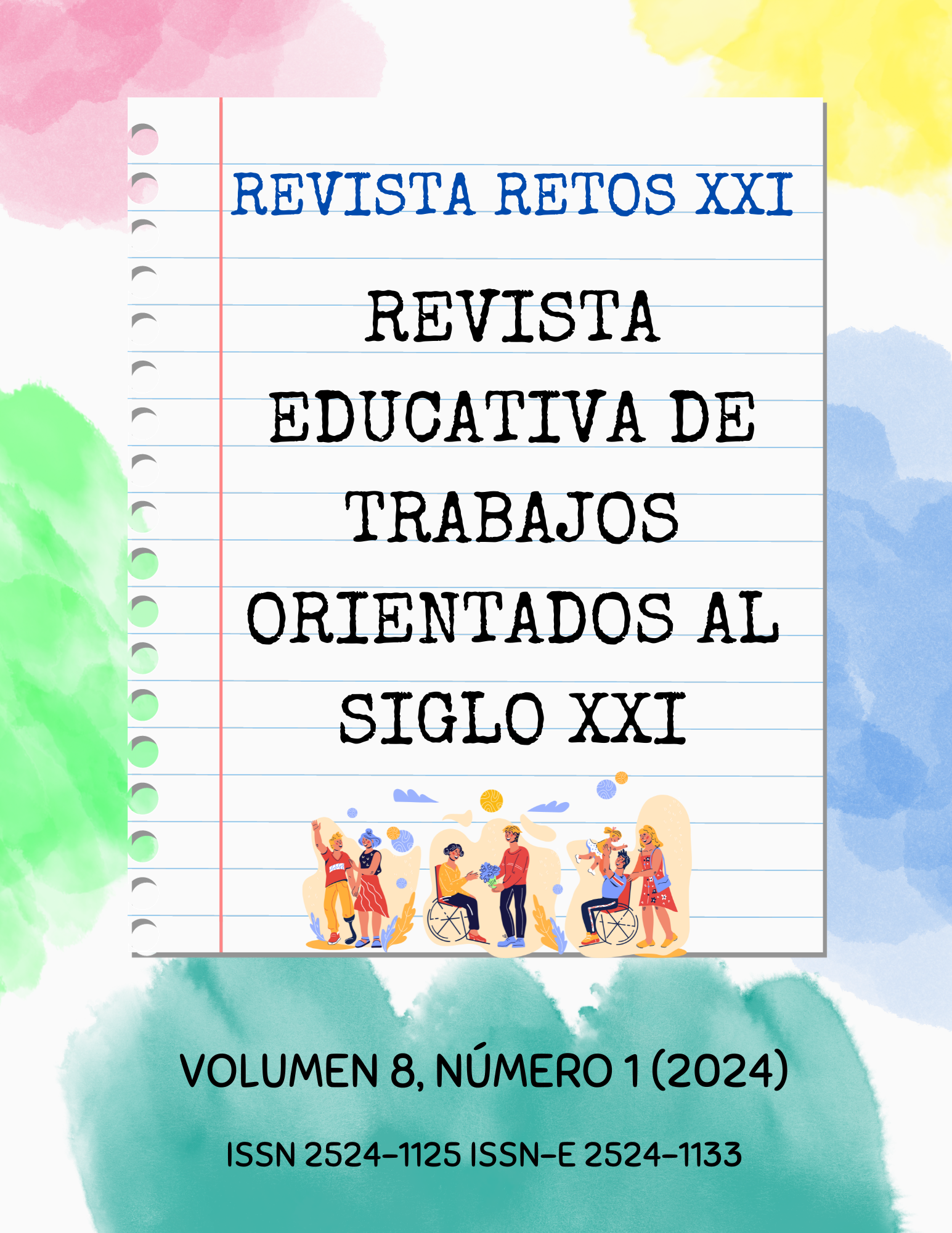DEVELOPMENT OF DIGITAL COMPETENCES IN SECONDARY SCHOOL STUDENTS: A DIAGNOSTIC FOR THE IMPLEMENTATION OF A LEARNING MANAGEMENT PROJECT
DOI:
https://doi.org/10.30827/retosxxi.8.2024.29023Keywords:
cooperative learning, digital competence, information search, digital contentAbstract
Digital competences constitute a set of key knowledge, skills and attitudes to train a competitive citizen in an increasingly digitized world that requires going beyond just having the skills to use ICT, since being digitally competent involves various areas according to The Digital Competence Framework for Citizens of the European Commission. In this context, this work describes the diagnostic phase of a project to manage the development of digital skills in secondary school students from the "Tepeyac College" in Poza Rica, Veracruz, using the Action Research methodology. Instruments were applied with the objective of knowing: learning styles, study conditions and level of digital competence. The results indicate that it is necessary to use strategies that consider the three learning styles; it is necessary to prop up some study conditions for better performance; and strengthen the following areas of digital competence: Search and management of information and data, and digital content creation.
Downloads
References
Almenara, J. C. (2015). Reflexiones educativas sobre las tecnologías de la información y la comunicación (TIC). Revista Tecnología, Ciencia y Educación, 1, 19-27.
Betín, A.B., Rodríguez, A., Caurcel, M.J. y Gallardo, C.P. (2022). Statistical validation of the "ECODIES" questionnaire to measure the digital competence of Colombian high school students in the subject of Mathematics. Mathematics, 11(1), 33, 1-18. https://doi.org/10.3390/math11010033
Betín, A. B., Rodríguez, A., Caurcel, M. J., y Gallardo, C. P. (2023). Effectiveness of a digital literacy program in High School Basic education students. Espiral. Cuadernos del Profesorado, 16(34), 12-27. https://doi.org/10.25115/ecp.v16i34.9516
Coronel, P. M. H., Cervera, M. G., y Fernández, I. F. (2018). La evaluación de la competencia digital de los estudiantes: una revisión al caso latinoamericano. Chasqui: Revista Latinoamericana de Comunicación, 137, 93-112.
Fernández, F. J., y Fernández, M. J. (2016). Los docentes de la Generación Z y sus competencias digitales [Generation Z’s Teachers and their Digital Skills]. Comunicar, 46, 97-105.
Ferrari, A. (2012). Digital Competence in Practice: An Analysis of Frameworks. [en línea]. European Commission.
García, N. (2006). ¿Dónde está la caja de herramientas? Cambios culturales, jóvenes y educación. Conferencia en el Seminario internacional “La formación docente en los actuales escenarios: desafíos, debates, perspectivas”. 19 de abril de 2006 en la Universidad de La Matanza.
Hernández, R., Fernández, C., y Baptista, P. (2014). Metodología de la investigación. 6ta ed. McGraw.
Sequera, M. (2014). Investigación-acción: un método de investigación educativa para la sociedad actual. Revista Arjé, 10 (18), 223-229.
Martin Barbero, J. (2006). La razón técnica desafía a la razón escolar. En: M. Narodowski y A. Martínez Boom y H. Ospina (comps.), La razón técnica desafía a la razón escolar. Construcción de identidades y subjetividades políticas en formación (pp 11-26). Noveduc.
Ministerio de Educación, Cultura y Deporte, España (2015). Orden ECD/65/2015, de 21 de enero, por la que se describen las relaciones entre las competencias, los contenidos y los criterios de evaluación de la Educación Primaria, la Educación Secundaria Obligatoria y el Bachillerato. Boletín Oficial del Estado (España), 25, de 29 de enero de 2015.
Pérez, M.A y Delgado, A. (2012). De la competencia digital y audiovisual a la competencia mediática: dimensiones e indicadores. Comunicar, 39 (20), 25-34.
Prensky, M. (2001). Digital Natives, Digital Immigrant Part 1. On the Horizon, 9(5), pp. 1-6.
Published
How to Cite
Issue
Section
License
Copyright (c) 2024 The Educational Journal of Works Aimed at the XXI century (XXI CHALLENGES)

This work is licensed under a Creative Commons Attribution-NonCommercial-ShareAlike 4.0 International License.












